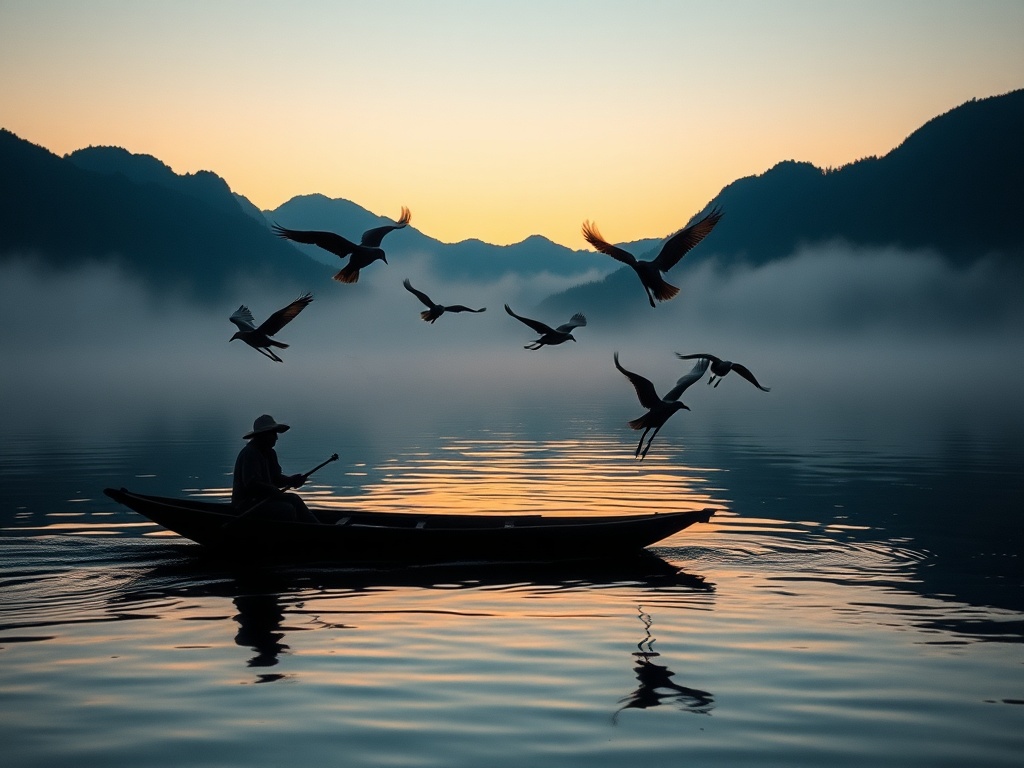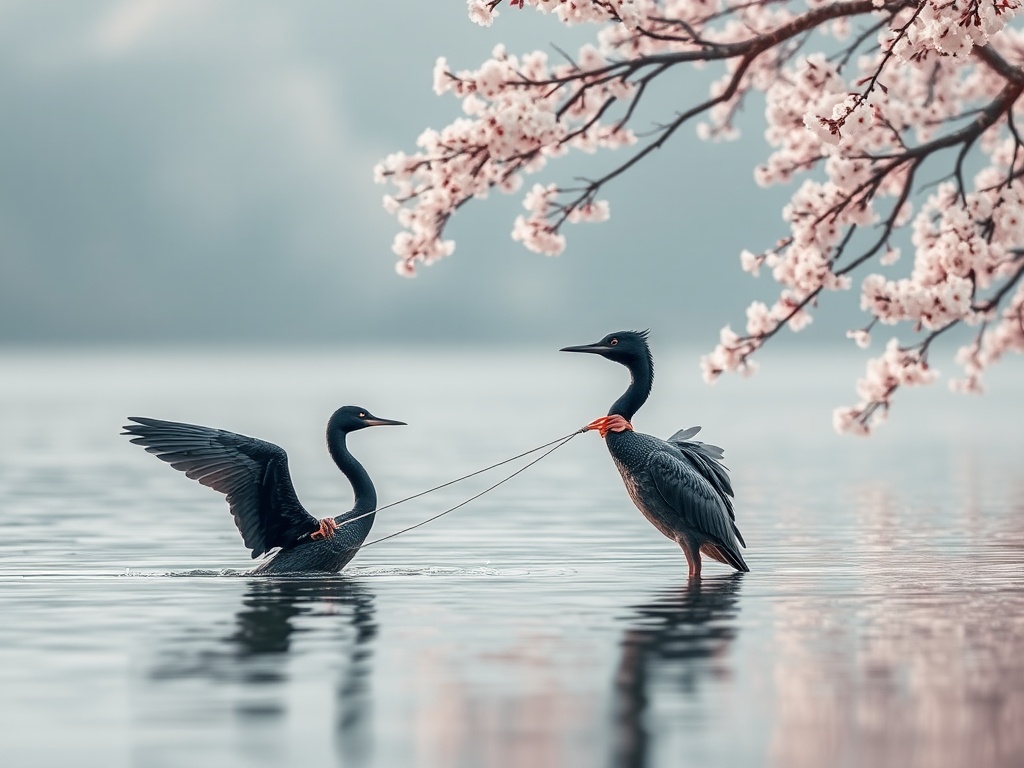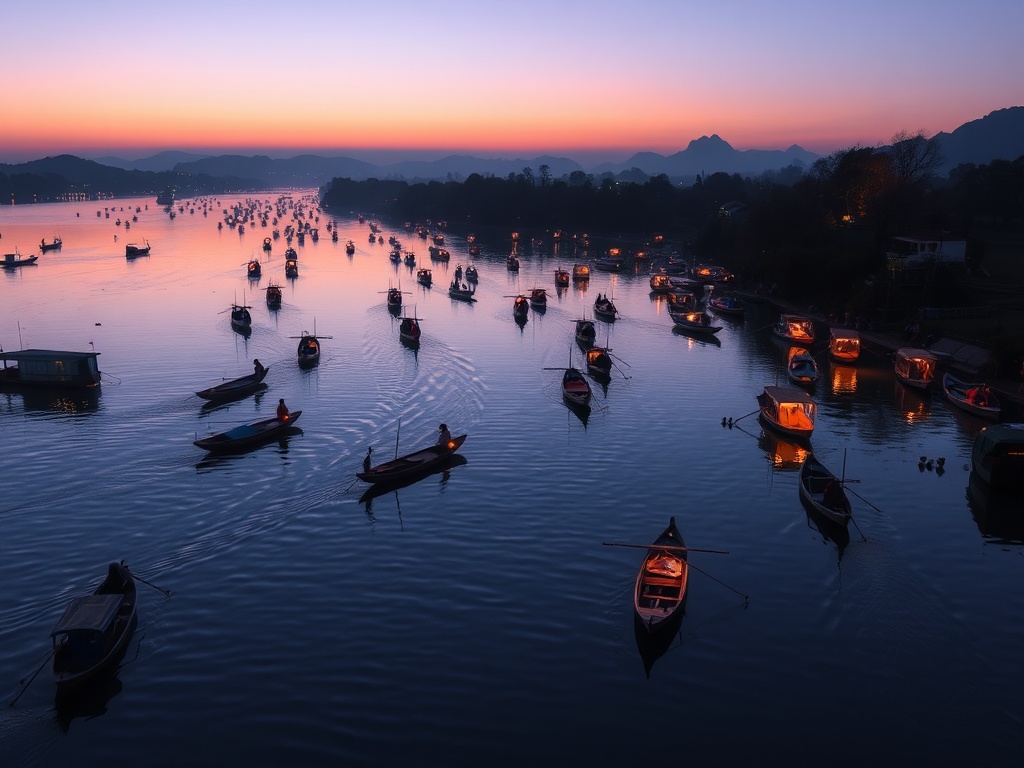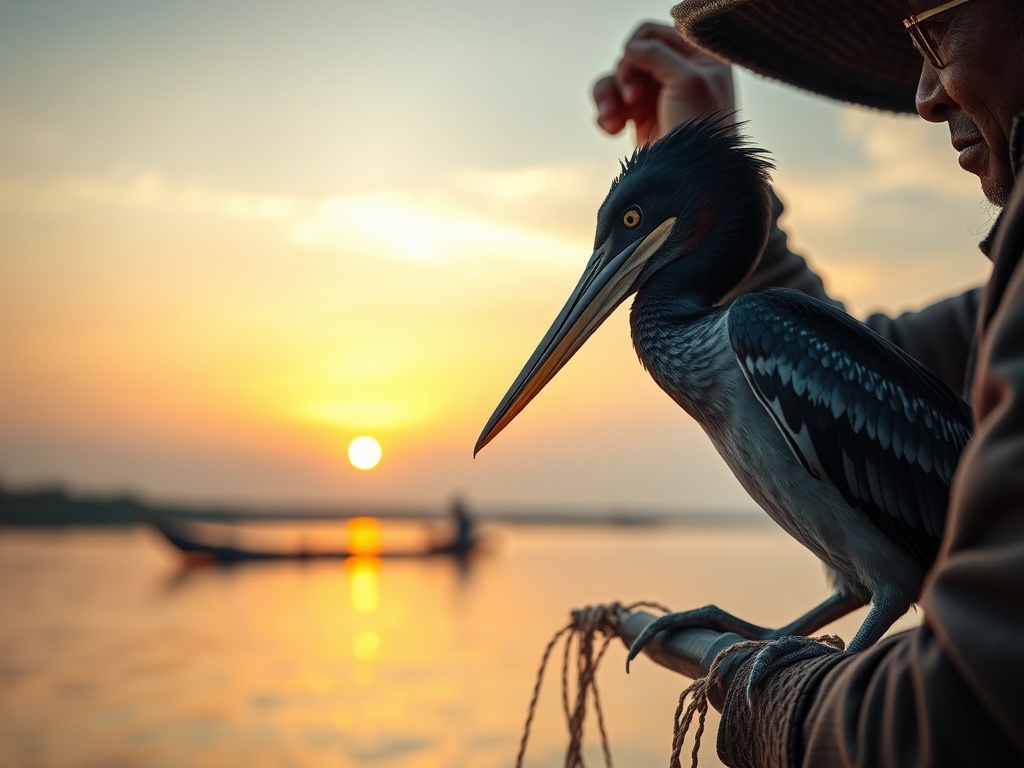Cormorant Fishing: A Unique Japanese Tradition
Win a Free Trip to Japan!
Experience cherry blossoms and ancient temples
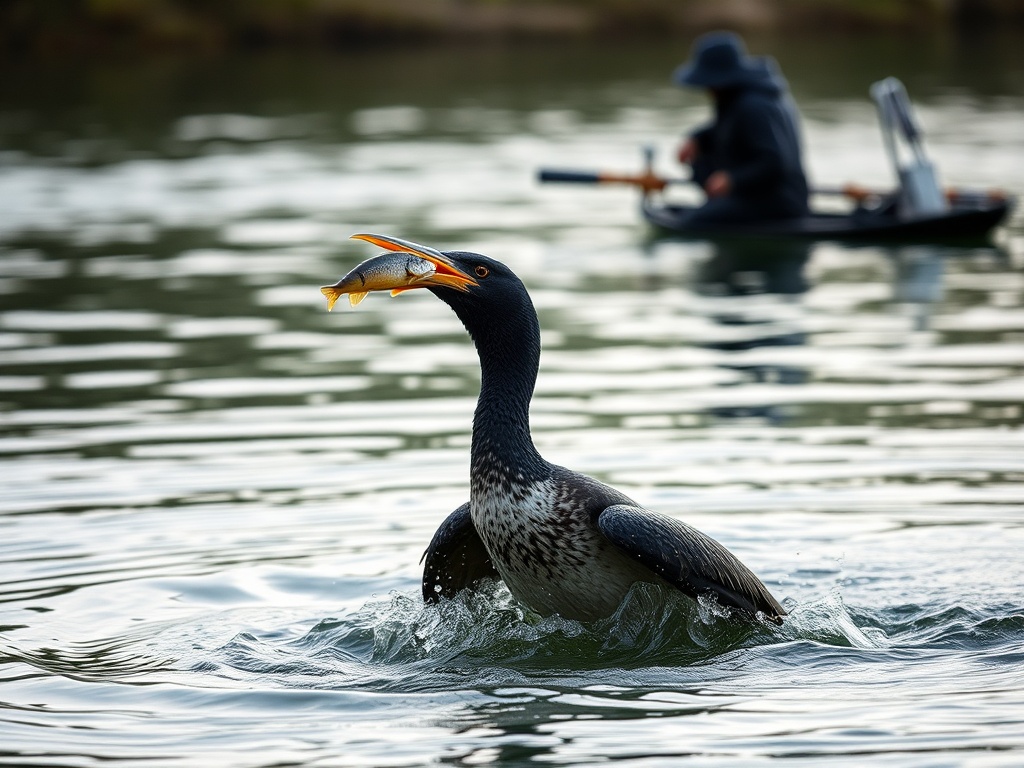
Have you ever heard of Ukai? This fascinating cormorant fishing technique has been captivating people for over 1,300 years in Japan! Imagine a night on the Nagara River, the air filled with excitement as you witness a time-honored method of fishing that combines the skills of both man and bird. This is not just fishing; it’s a mesmerizing spectacle where nature and tradition intertwine.
The Masters of Ukai
At the heart of this ancient practice are the masters of cormorant fishing, known as Ukaishi. These skilled individuals are not just fishermen; they are caretakers, trainers, and, in a sense, family to their cormorants. The title of Ukaishi is as prestigious as it comes, being passed down through generations, often directly from parent to child. This hereditary title is recognized by the Imperial Household Agency, which adds a royal touch to the tradition.
The training of cormorants is no small feat! The birds undergo rigorous training for several years before they are ready to hit the waters. They are taught to dive deep and catch fish, and they possess incredible eyesight, allowing them to spot fish even in the darkest waters. Once they catch their prey, they store it in a special pouch in their throat, making retrieval easy for the master fisherman.
The Fishing Experience
Picture this: a wooden fishing boat, about 13 meters long, gliding quietly on the water under the moonlight. The Ukaishi stands in the front, skillfully managing a team of 10-12 ropes that control the cormorants. Behind him, a bonfire crackles, illuminating the water and creating an enchanting atmosphere as the flames dance. The fire is fueled by pinewood, which continues to burn even in light rain, ensuring that the fishing continues undeterred!
- Master Fisherman: The Ukaishi, who leads the fishing expedition.
- Center Rower: The assistant who helps the master and controls the boat’s direction.
- Rear Rower: The individual responsible for steering the boat and ensuring smooth navigation.
Where to Watch Ukai
If your curiosity has been piqued, head over to Gifu Prefecture where you can watch this incredible spectacle on the Nagara River. From May 11 to October 15, six talented master fishermen perform this breathtaking technique nearly every night. This is an experience like no other, so mark your calendars!
What to Expect as a Spectator
As a spectator, you won’t just be sitting on the sidelines. Oh no! You can hop aboard a boat and sail alongside the cormorant fishing boat, immersing yourself in the tradition. The fishing experience lasts a little over an hour and costs around 3,500 yen per person. It’s highly recommended to make a reservation in advance, especially during peak seasons when tourists flock to witness this luminous spectacle.
Along the river, you’ll also find charming ryokan (traditional Japanese inns) offering delightful dinner options paired with boat tours, making it a perfect way to unwind after a day of exploration.
Getting There
Ready to embark on this adventure? Getting to Gifu is a breeze! From Gifu Station, simply hop on a bus to the Nagarabashi bus stop. The ride is about 15 minutes, and guess what? The dock for cormorant fishing is just a stone’s throw away from the bus stop. Talk about convenience!
Join the Ukai Adventure!
For those who crave unique experiences, Ukai offers an unforgettable journey into Japan’s rich cultural heritage. Whether you’re an avid fisherman or a curious traveler, this ancient technique promises to leave you spellbound. So why not add it to your travel bucket list? And who knows, you might even learn a thing or two about teamwork—not just between humans, but with our feathered friends!
Disclaimer: There are affiliate links in this article. This means that if you make a purchase after clicking on these links, we may receive a small commission at no extra cost to you. We have no association with the companies or the products reviewed. These are our own opinions of top travel products.
